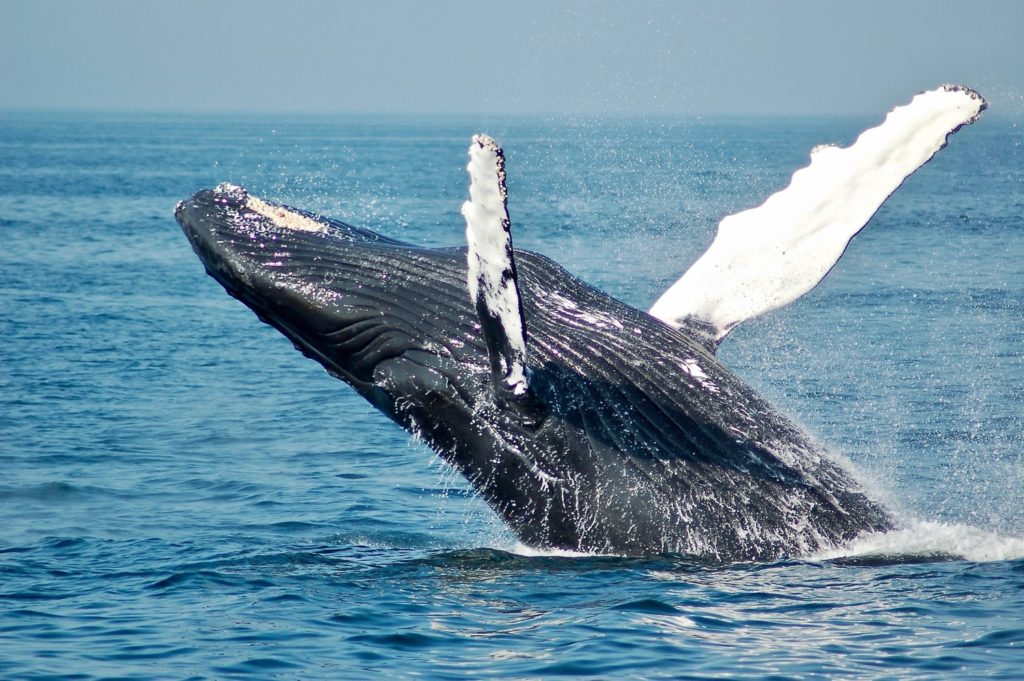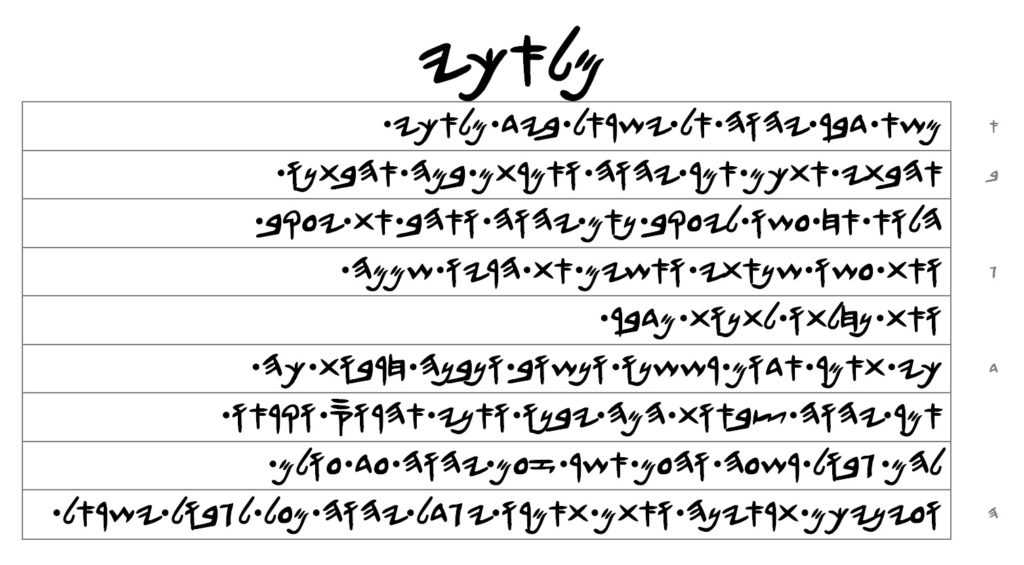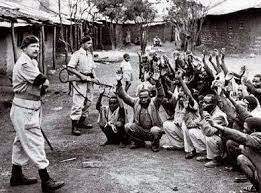

[1] The burden of the word of YA’OH to Ya’oh-shar-al by the hand of Mal’ach-Ya’oh.
[2] I love you, says YA’OH, but you say: How do you love us? Is it not a brother is Ghasho to Ya’oh-ghakab, says YA’OH? But I love Ya’oh-ghakab,
[3] and Ghasho I hate, and I will make his mountains a devastation and his heritage for the whales of speech.
[4] For Adom will say: We have been broken into pieces, but we will return and we will build the wastes. Thus says YA’OH of Hosts, they will build, but I will throw down, and they will call them: The Border of Wickedness, even the people whom YA’OH is angrily indignant until for ever.
[5] And your eyes will see, and you all will say: Let YA’OH be magnified from beyond the border of Ya’oh-shar-al!
This post piggybacks off of the previous post about Adom according to the prophet Ghabad-Ya’oh. The post-exilic prophet Mal’ach-Ya’oh (“Messenger of YA’OH”) also had some very important things to say about the people of Adom, but the 1611 Queen James Virus and other English translations do not render verses 1-5 accurately, and so the English reader is misled into thinking the people of Adom suffered a major calamity prior to the writing of the book in the post-exilic period, when in fact verse 3 is predicting a calamity in the future and not alluding to one in the past.
[1] Verse 1 is self-explanatory.
[2] In verse 2, YA’OH tells His chosen people that He loves them, and they ask Him how. His response is a question: Isn’t Ghasho (Esau) the brother of Ya’oh-ghakab (Jacob), followed by the statement that He loves Ya’oh-ghakab.
[3] Verse 3 isn’t popular with people who have been duped by Christianity into thinking that the Higher Power of Ya’oh-shar-al loves everybody. Clearly, He does not. But how is the expressed hatred for Ghasho on the part of YA’OH proof that He loves Ya’oh-ghakab? Because He is promising in this verse to make the mountains of Ghasho a devastation, and to turn his heritage over to “whales of speech.”
As I stated in the previous post, the people of Adom never suffered from catastrophic foreign invasions while they were living in their ancestral homeland south of Moab, nor while they were living within the southern parts of Ya’ohdah (Judah) which was called Idumea. But because the faulty English translations treat the verb wa-ashaym (ואשים) in verse 3 as a perfect, “I have made,” instead of as an imperfect, “I will make,” you have heathen bible interpreters disputing with each other about when this devastation took place prior to the composition of the book by the prophet Mal’ach-Ya’oh. Most want to believe that the Matsray (Egyptians) or the Babylonians were responsible for causing the devastation sometime during the 6th century BCE, but no prophet states that the Adomay would be destroyed by the Matsray or by Babylonians at that time, only that they would be forced to submit to Babylonian rule along with other nations in the region (Yaram-Ya’oh 25:21).
The thought evidently contained in verses 3-4 is that Ya’oh-shar-al has come back from exile (as of 519 BCE) in the Persian period and they have repaired the injury of the Babylonian conquest, whereas the Adomay are going to experience a devastation they will never be able to fully recover from, even though there will be a revival, and this is how YA’OH will demonstrate His consequent love for the younger brother and His unending hatred for the older brother.
It follows from this that the “mountains” (plural!) in verse 3 refer to mountains in the new land, i.e. the fatness of the earth in Western Africa, where the Adomay congregated after they quit Idumea; for neither Idumea in southern Ya’ohdah, nor the original homeland of the Adomay south of Moab was a land characterized by several prominent mountains. The original homeland of the Adomay was notable for just one mountain range, Mount Shair (Seir). On the other hand, although West Africa is more known for its steamy tropical forests caused by “the dew of heaven,” and for its great abundance of natural resources, being “the fatness of the earth,” it also is home to a number of remote and/or inaccessible mountains: Mount Cameroon, Mount Pico Basile, Mount Nimba, Mount Bintumani, and Mount Pico de Sao Tome.
Therefore, the clause “I will make his mountains a devastation” is said in reference to the Adomay living in the fatness of the earth in West Africa and not the so-called Levant.
We can now explain the next enigmatic clause, “and his heritage for the whales of speech.” The 1611 Queen James Virus and other English versions get this wrong and render the construct phrase la-thanoth madbar (לתנות מדבר) as “dragons of the wilderness.” The noun than (תן) means “whale, sea monster” not “dragon” or “jackal.” See, for example, Ya’oh-khazak-al (Ezekiel) 32:2. The next word is not the noun madbar, “uninhabited country, wilderness.” It is the noun madabar, “speech, talking,” e.g. “your speech is lovely” (Songs 4:3).
Whales do talk. The sounds they make in order to communicate are sequences of moans, howls, cries, clicks, and other noises unintelligible to humans. They even sing to each other. But verse 3 is obviously not saying that whales would literally come out of the sea and occupy the heritage of Adom in West Africa. What it is saying is that people coming from the sea where whales live would occupy West Africa, and these colonizers from the sea would be like whales speaking languages that the Adomay in West Africa would not initially understand. This is alluding to Europeans who came to West Africa via the sea and swallowed up Africa.
Europeans had frequented the coasts of West Africa since the 15th century and established settlements with permission being granted by locals along the coast in order to facilitate trade, in particular the transatlantic slave trade which required alliances with the local Adomay chiefs. Europeans were not raiding and stealing people from West Africa. This is a myth. They were bargaining and buying slaves from the Adomay elite who ended up supplying more than twelve million of their assimilated servile underclass, i.e. their Ya’oh-shar-al slaves and war captives, from the 16th to the 19th century. But the trading alliances between the Europeans and the Adomay collapsed when the Europeans betrayed the Adomay and began their scramble for Africa which culminated in the Berlin West African Conference of 1884-1885. The heritage of the Adomay in West Africa was seized and colonized by the talking monsters from the sea, “the whales of speech.”
[4] In verse 4 the Adomay lament their conquest and their devastation while asserting that they will bounce back and rebuild themselves. YA’OH agrees with them that they will rebuild themselves, but that He will also throw down what they rebuild. After the end of colonial period most West African leaders, optimistic about their countries’ future at independence, formulated good policies for the social and economic development of their people. School enrolment, for example, increased substantially in the first decade of independence. The road network was expanded. Hospitals, clinics, and cities were rebuilt on a grand scale. Despite many yet unsolved problems, post-colonial West African countries have made tremendous rebuilding progress since their independence. They have improved social services and expanded the infrastructure considerably. They have not only rebuilt the wastes of the colonial period they have significantly improved them.


However, they will never return to their former pre-colonial greatness. Because they are Adomay who enslaved and sold OMPP, whether they are still aware of being Adomay or not aware of it because they are divided into different ethnic groups speaking different dialects (the Fante and the Asante in Ghana, and the Hausa/Fulani, the Yoruba, and the Igbo of Nigeria, etc.), YA’OH has determined to destroy them as one people, and their destruction will be like the overthrow of Sodom and Gomorrah (Yaram-Ya’oh 49:17-18). When this destruction occurs the abode of the Adomay in the fatness of the earth will be renamed: “The Border of Wickedness, even the people whom YA’OH is angrily indignant until for ever.” It will happen at the same time New Babylon (i.e. America) is brought down. The children of Adomay enslavers of OMPP in West Africa and the children of European enslavers of OMPP in America will be destroyed simultaneously. The earth itself will be moved at the noise of their fall (Yaram-Ya’oh 49:21; 50:46).
“Red Sea” is an English mistranslation of yam sop in Yaram-Ya’oh 49:21. Nor is “Reed Sea” any better. Reeds cannot grow in the kind of deep and “mighty waters” where the pharaoh and his entire Matsraym army drowned during the first Exodus (Thorah 2 [Exodus] 15:5, 10, 19; Mazmor [Psalm] 136:13-15). The term yam sop means “Sea of the Storm” or “Sea of the Tempest,” with SOP derived from SOPA (cf. Thorah 4 [Numbers] 21:14). The yam sop our ancestors crossed in the first Exodus in 1497 BCE was the the Red Sea proper, at the point where the sea turns into the Gulf of Suez. The Greek Ερυθρὰ Θάλασσα from whence we ultimately get the term “Red Sea” actually has nothing to do with the color of the sea but with the fact that storms originate from this direction. Likewise, the yom sop where the prophet Yaram-Ya’oh states that the cry of the Adomay will be heard when they are destroyed catastrophically is a reference to the Atlantic Ocean and to the fact that the coast of West Africa is the birthplace for deadly storms that move across the Atlantic Ocean heading for the Americas.
[5] The Adomay rebuilding themselves after their devastation by heathen nations, formerly their allies, who violently dispossessed them of their lands in their scramble for West Africa at the end of the 19th century, has been ongoing since the end of colonialism in the 20th century. The annihilation of the Adomay as a people is still future, and when that happens verse 5 states that the people of Ya’oh-shar-al will witnesses it with their own eyes and say: “Let YA’OH be magnified from beyond the border of Ya’oh-shar-al!” This, of course, will be uttered in the Pure Language and not in the heathen’s filthy English. Our people will know the Pure Language when that day comes. They are already re-learning it as we speak.
YA’OH will have demonstrated His love for Ya’oh-ghakab by repaying his Adomay enslaver who has lived in the fatness of the earth, “beyond” the border of the land of Ya’oh-shar-al in the Levant, during the same time that Ya’oh-ghakab has been homeless! A poetic justice served up by his one and only Redeemer. His one and only Redeemer has a name.
His name is YA’OH
Always has been. Always will be.
#EXODUS2023
1.15.7252 (April 5, 2023)
